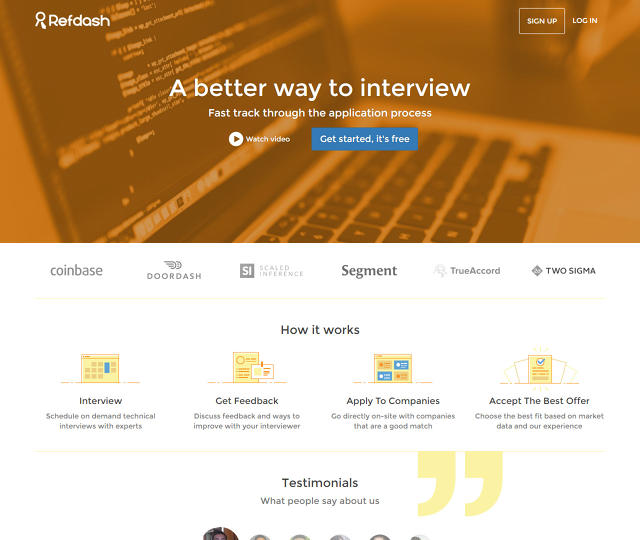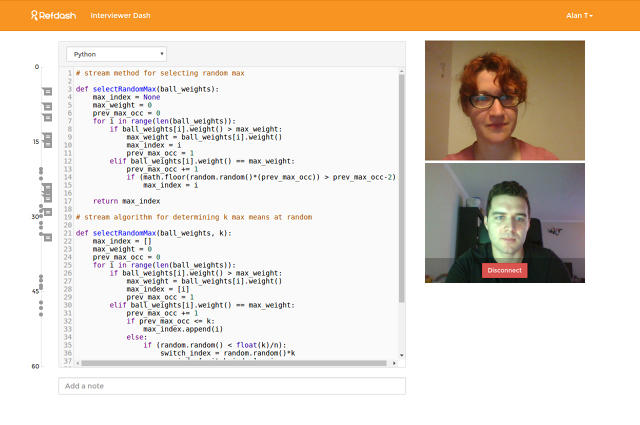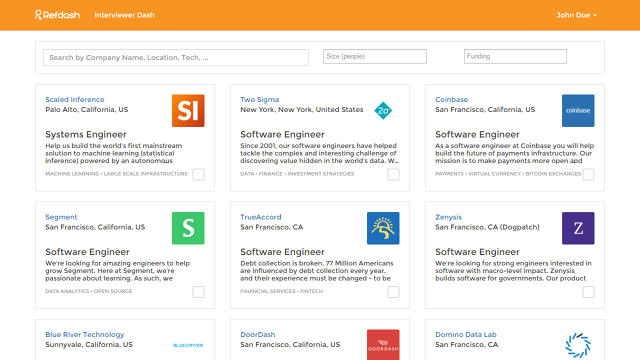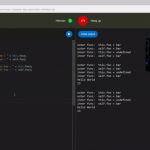This New Platform Aims To Speed Up The Interview Process For Tech Workers
Though it’s one of the most advanced industries with some of the most in-demand jobs, the recruiting and hiring process for software engineers remains highly inefficient and archaic.
Resumes are often judged based on brand-name educational institutions and former employers, coding tests and interviews are extremely time consuming, and candidates who are rejected are left without any indication of how they can improve in the future (mostly due to legal constraints). Employers, on the other hand, must make initial hiring decisions based on resumes alone, and spend countless hours putting candidates, a majority of whom they will not hire, through initial screening, tests, and interviews. No wonder the hiring process averages 23 days, up from just 13 four years ago.
Identifying inherent biases and inefficiencies in the tech-industry recruiting process has led to a variety of new technical solutions, including Blendoor, a Tinderlike app that reveals the exact opposite information the dating service provides, hiding a candidate’s photo, name, age, employment history, and criminal background, so that potential employers only see qualifications. Others, such as HiringSolved, seek to change the recruiting process by injecting it with artificial intelligence, helping recruiters narrow down the massive pool of candidates into the most likely contenders.

Today, a new competitor enters the digital recruiting space for the tech industry that hopes to streamline the process for both recruiters and employers. Unlike the traditional model, Refdash provides a platform where candidates can be tested and interviewed once and have their results sent to the employers of their choice.
“We want to be a platform where you verify your technical ability once, and then apply that knowledge across different companies,” says cofounder Nikola Otasevic.
Instead of applying directly to a hiring manager or recruiter, candidates are screened by a Refdash interviewer who has previous experience in tech recruiting, using the company’s video chat and code-sharing platform. Unlike typical job applications, however, this interviewer actually provides feedback to candidates to help them improve as they move forward.

“We send a technical report based on these interviews, and companies can then skip their initial phases of their interview, because they get assessments of technical abilities from us,” says Otasevic. Each company is required to fast-track Refdash candidates to the onsite interviewing phase. “That saves time for the candidate and the company,” he points out.
Otasevic believes that this process can also help eliminate bias in the early stages of the recruiting process, where many candidates are eliminated for simply not having high-status schools and employers on their resumes.
“Our belief is that biases exist because of a lack of information,” says Otasevic. He doesn’t blame hiring managers for needing to narrow down hundreds of candidates into a few finalists based on their resume alone. He says it’s a “perfectly rational thing to do when you don’t have additional information” and a large talent pool to wade through. However, this can eliminate some of the best candidates from consideration. “We want to evaluate people on concrete information,” he explains, “like how they code, how they understand problems, how they talk about technical infrastructure, things like that.”
Refdash has also partnered with DiverseUp, which rates employers based on their gender inclusiveness.

Refdash launches today with more than 15 employers in the tech industry, including New York-based hedge fund manager Two Sigma and San Fransisco-based Coinbase, a digital asset exchange company. The service is free for candidates and only costs employers if they hire a Refdash candidate—and only if that candidate remains for a certain period of time. This cost structure is similar to traditional placement fees in the recruiting industry.
While Refdash is currently limited to software engineers, Otasevic says there’s no reason why the company can’t take its platform to other positions and industries in the future.
“Ultimately once you reduce this inefficiency in the whole system,” says Otasevic, “we can start expanding and making the evaluation process deeper and more representative of what candidates can do, and not how they appear on paper.”
Fast Company , Read Full Story
(55)














